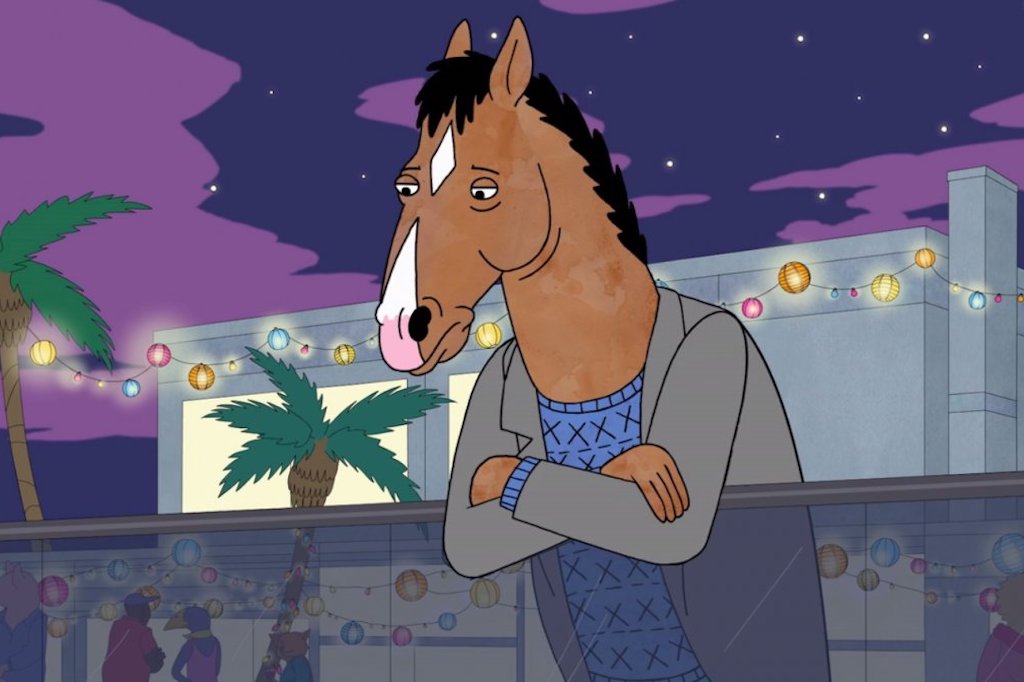How TV Is Changing The Conversation On Mental Health
There's a reason a depressed horse is one of the most relatable characters on TV right now.


Study at ACAP, where you’re a name, not a number. Find out more about our courses in psychology, counselling, social work, youth work, coaching and social science.
We’ve all been told never to judge a book by its cover, and the same can be said for thumbnails from TV shows. We might think that sitting down to a cartoon featuring animals wearing sweaters will be a light-hearted 22 minutes, only to be completely taken aback by the themes covered. You might ask yourself: did I just watch a comedy about a depressed horse? The answer is yes, yes you did.
More and more, television shows are covering issues of mental health in a way that is creative, nuanced and compassionate. For some people, they may be seeing themselves onscreen for the first time. For others, it allows a brief snapshot of the experiences many people face in a way we’ve never seen before.
We Want To Know Why Characters Do The Things They Do
So who was that aforementioned horse? Bojack Horseman, of course (of course). The series took Netflix by storm in 2014 and continues to handle themes such as substance abuse and mental illness with layered sensitivity.
The fourth and most recent season of Bojack managed to illustrate the debilitating nature of both dementia and intergenerational trauma with sensitivity and thoughtfulness. As creator Raphael Bob-Walker told Junkee earlier this year:
“In the past, a character had a funny quirk, but you couldn’t really delve into that … you couldn’t go too dark with it; you had to keep that status quo going for as long as possible. But now you’re seeing the creators of the show really take those quirks seriously, and the actors can take that seriously and go, ‘Okay, well what does that mean that this character acts this way? …Why would his character do that?’”

Photo: Fleabag/BBC Three
These questions of why people do what they do are highlighted again in BBC’s Fleabag, which follows the struggles of a young woman dealing with unaddressed grief, a failing business and family conflict. It’s hilarious — and at times a little absurd — while skillfully presenting the raw misery and loneliness she experiences.
As writer Kat Hayes highlighted with the lead character’s line in the final episode (“Either everyone feels like this a bit and they’re not talking about it, or I’m really fucking alone”), this misery is common but doesn’t have to be suffered through solo. Hayes writes that Fleabag “humanises flaws that, in actual fact, aren’t flaws at all. If you’re a disaster… bear in mind you’re not alone.”
Seeing Ourselves Onscreen
For people living with mental illness, seeing themselves onscreen can be life-changing. As someone who has suffered from severe anxiety and panic attacks, the scenes in Better Call Saul of Chuck experiencing panic was the most accurate fictional illustration I’d ever seen.
If I had to describe panic, I would show a clip of Chuck attempting to leave his house before it all gets too much – the dizziness, the blinding lights, the inability to breathe. While Chuck’s anxiety revolves around his belief that he has an allergy to electricity, we the audience are never judging or mocking him for this. We judge him for treating his brother cruelly, but not for his anxiety.

Photo: Better Call Saul/Netflix
The shows above and many others including Please Like Me and Crazy Ex-Girlfriend are portraying experiences we do not often see onscreen, allowing audiences to see the sometimes messy and very real side of mental health issues.
Sure, it’s entertainment but it’s also informative and can lead to conversations with others about these topics. Certain episodes of these shows stay in your mind for days, and that’s a good thing.
Normalising Experiences Of Mental (Ill) Health
Representation of mental health in all its forms, when handled sensitively, helps to normalise the experience of mental ill health in a compassionate and sensitive way. After all, we know many people in our community are experiencing the same struggles we see on our TVs. Mental ill health is common in Australia, experienced by one in five people aged 16-65.
It would be remiss of creators not to include it in television shows about the human experience because it is such a major part of life for many of us. Highlighting mental illness onscreen helps the general population obtain an insight into the everyday reality of these experiences, while offering others validation; it’s truly ‘relatable content’ and might help people to share with their loved ones “this is what it feels like”.
We also know that around 54% of folks struggling with their mental health do not access treatment. Displaying treatment narratives in pop culture such as Crazy Ex-Girlfriend can hopefully break down part of the stigma associated with seeking help, and see people reaching out within their community as their experiences are normalised.
Above all, these television shows highlight the importance of being compassionate to others and encourage us to reach out to the more vulnerable people in our community. We are reminded again to ‘be kind, for everyone you meet is fighting a battle you know nothing about.’
—
(Lead image: Bojack Horseman/Netflix)
—
Interested in working in a mental health field? The Australian College of Applied Psychology offers courses in psychology, counselling, social work and more, taught by industry experts. Find out more here.